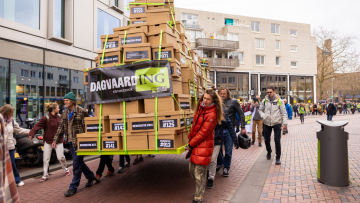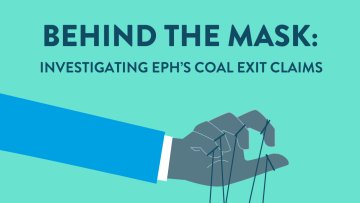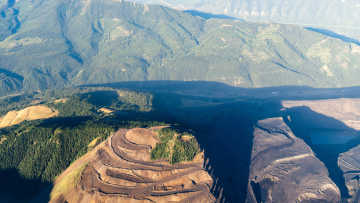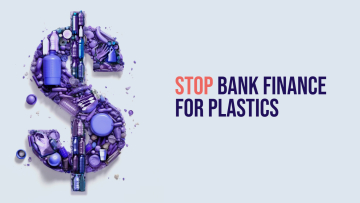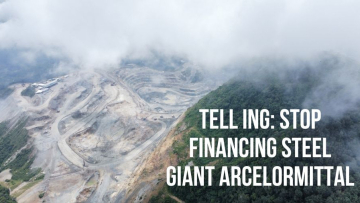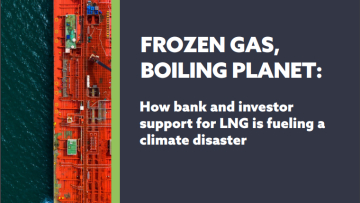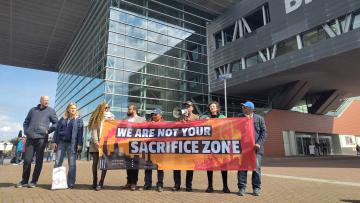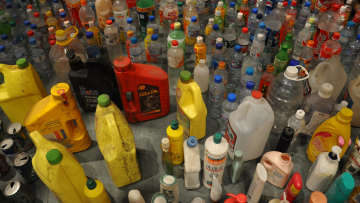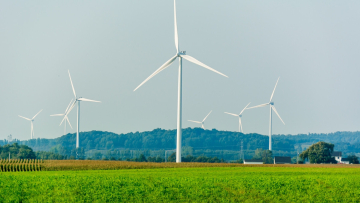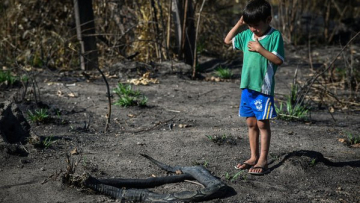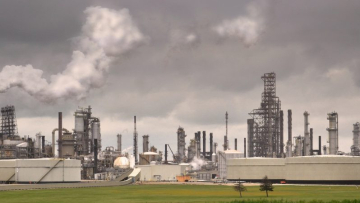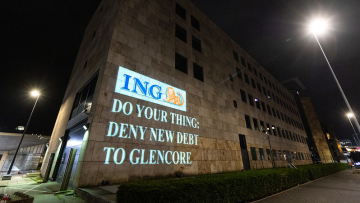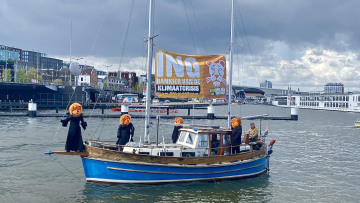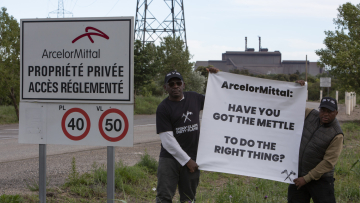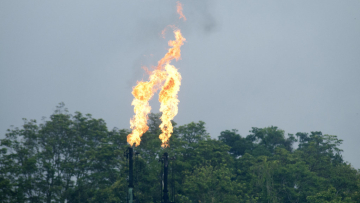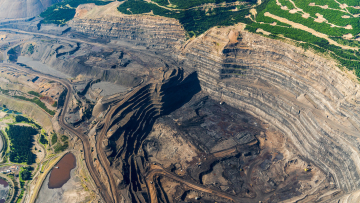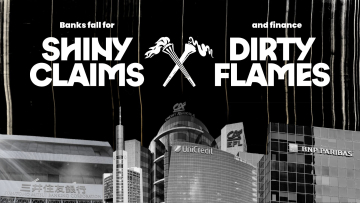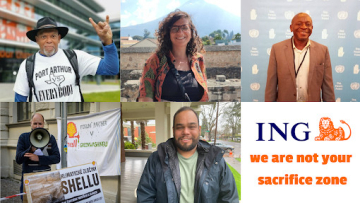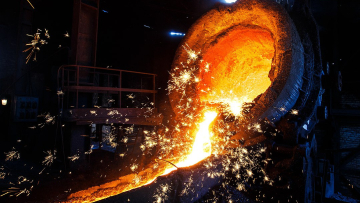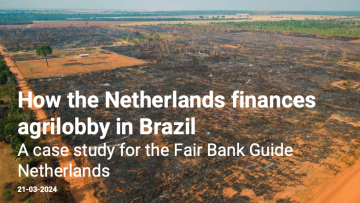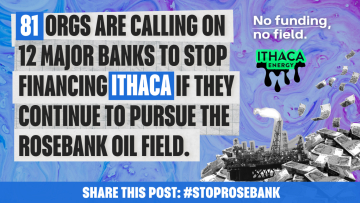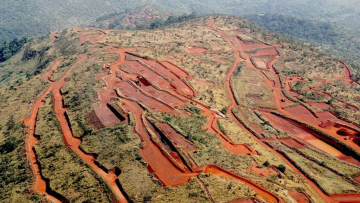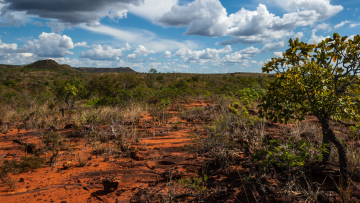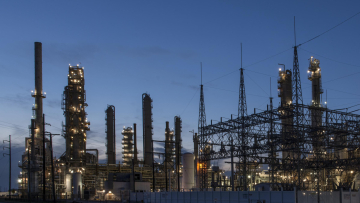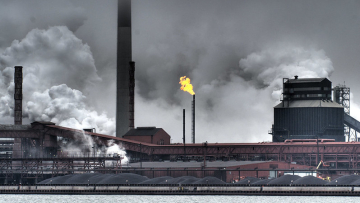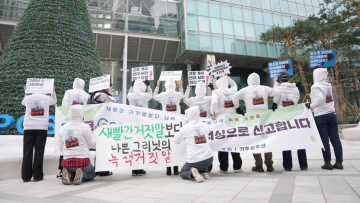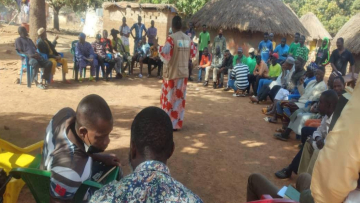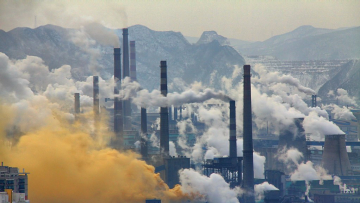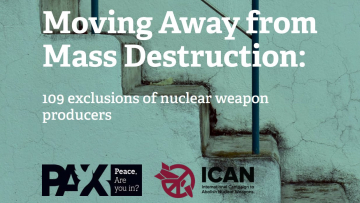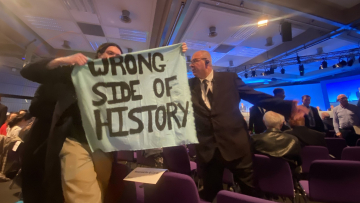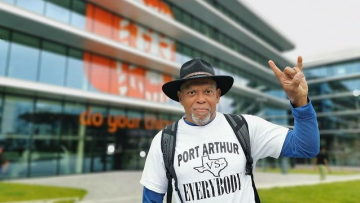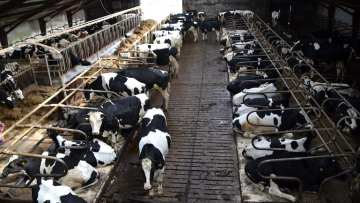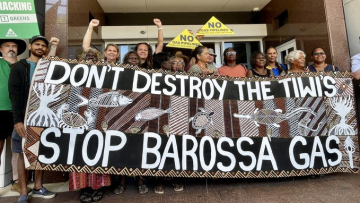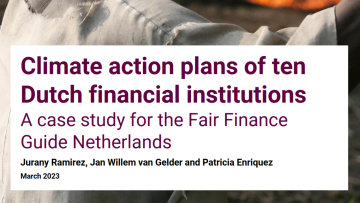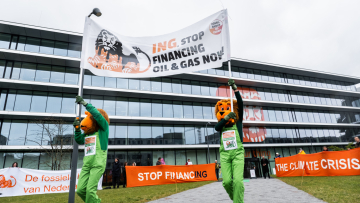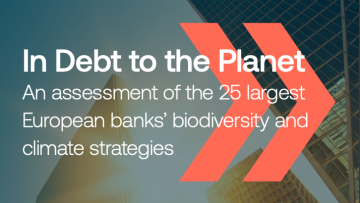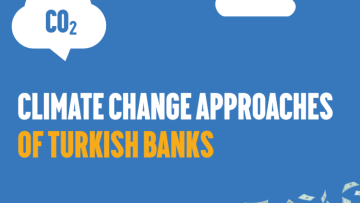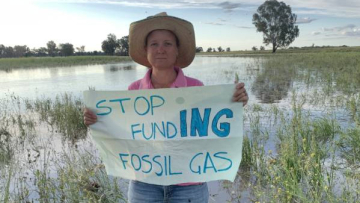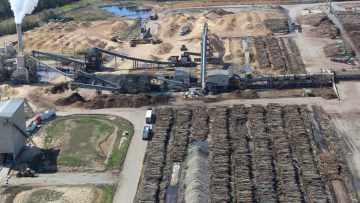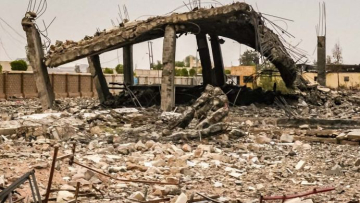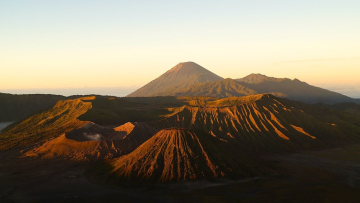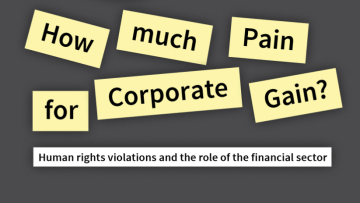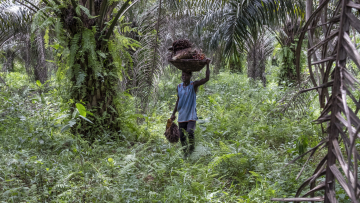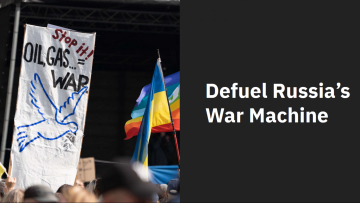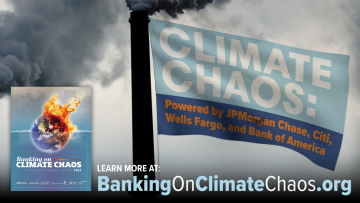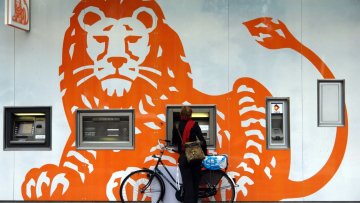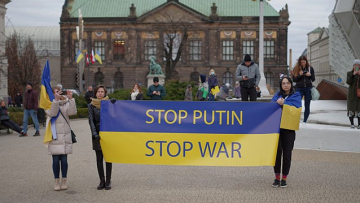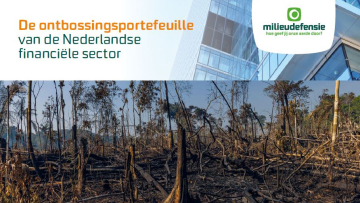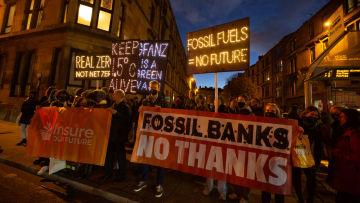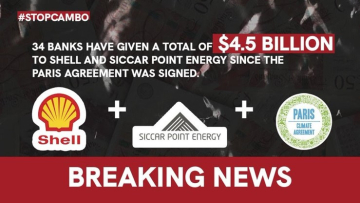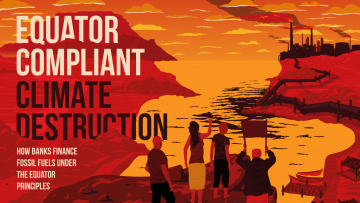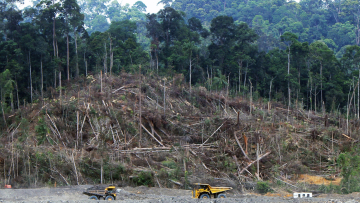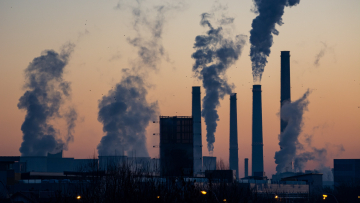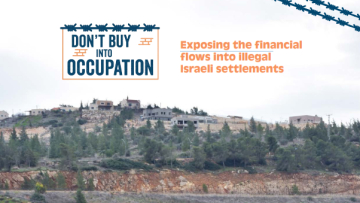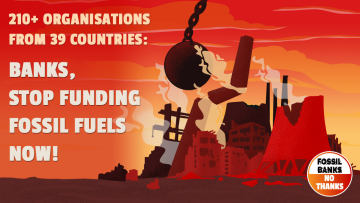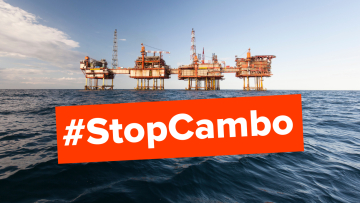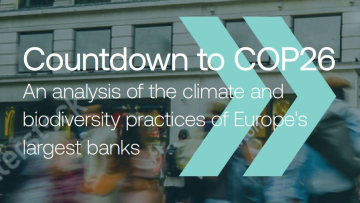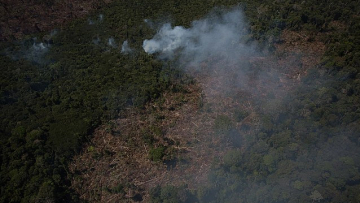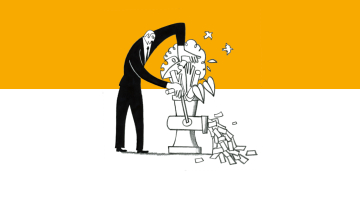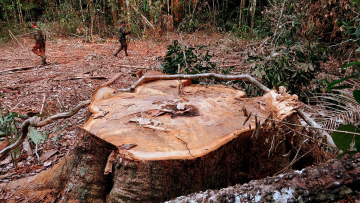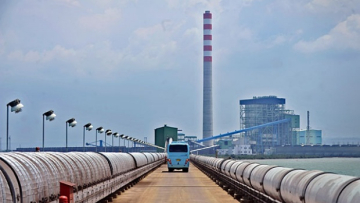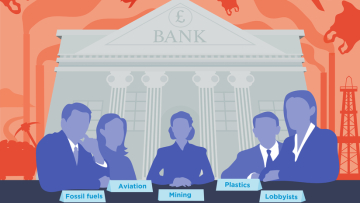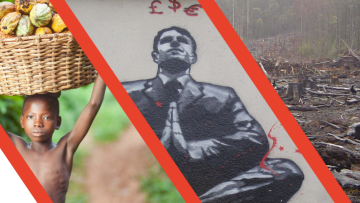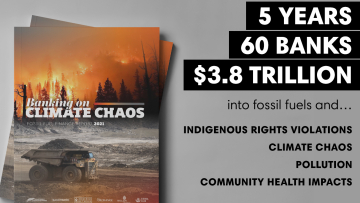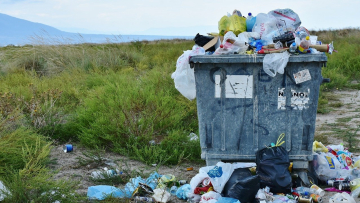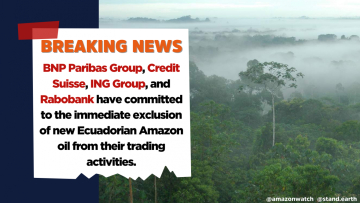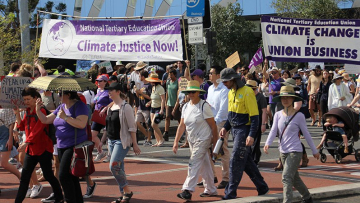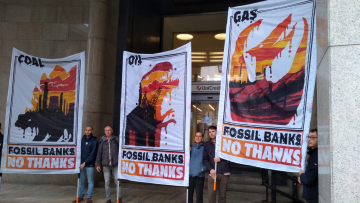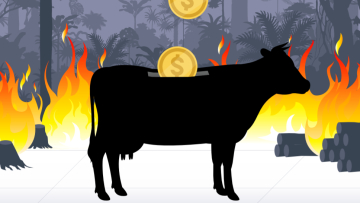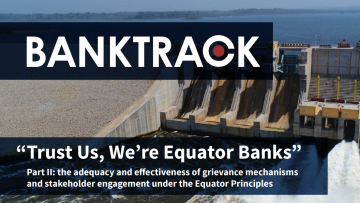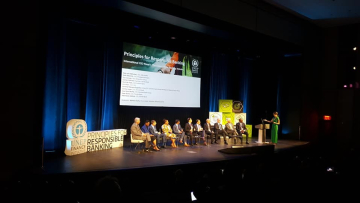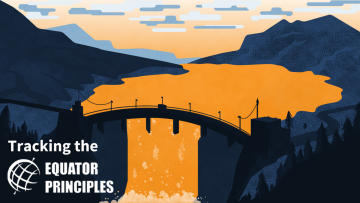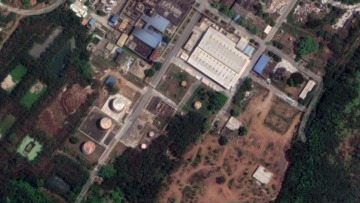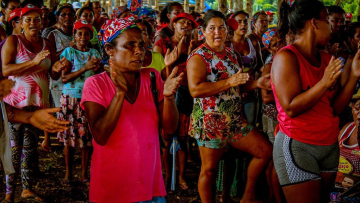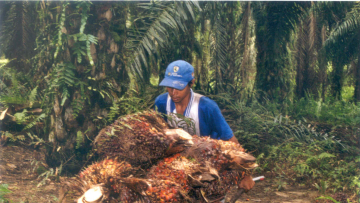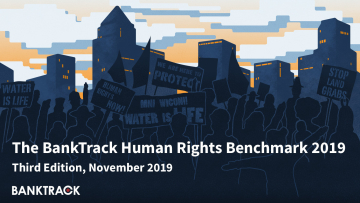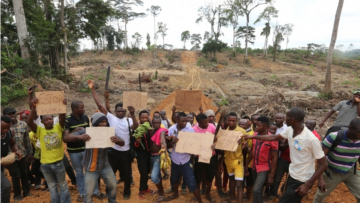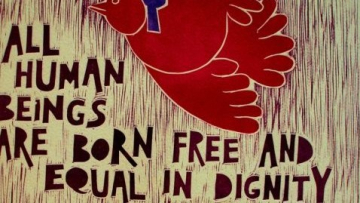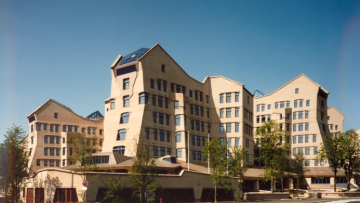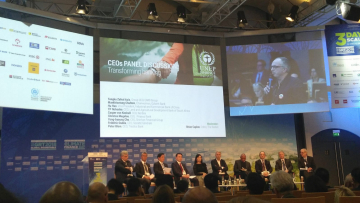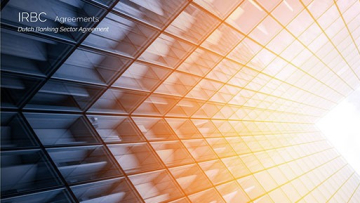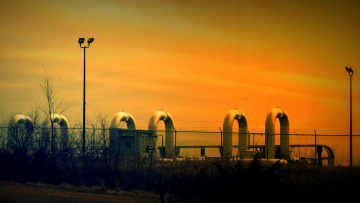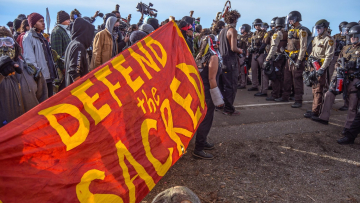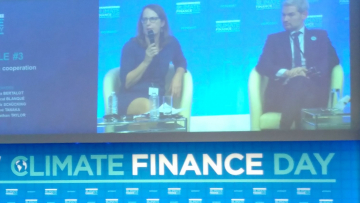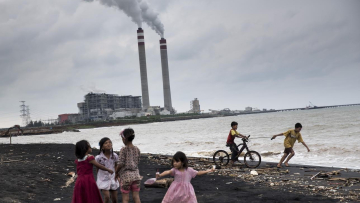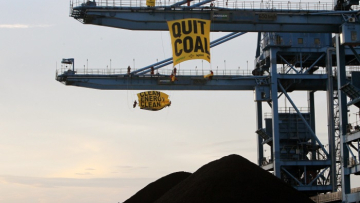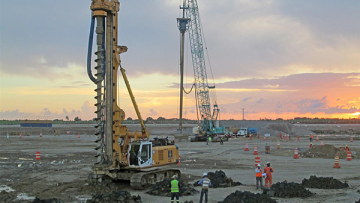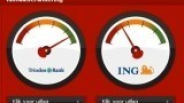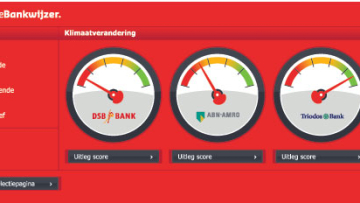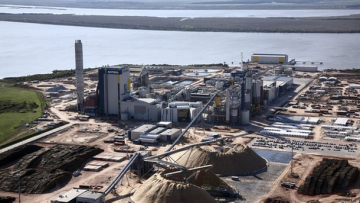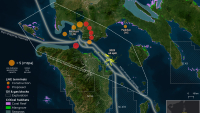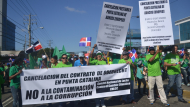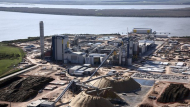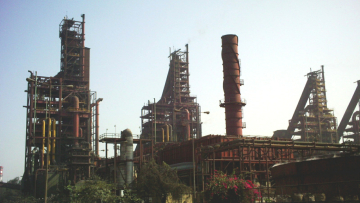
Active
This profile is actively maintained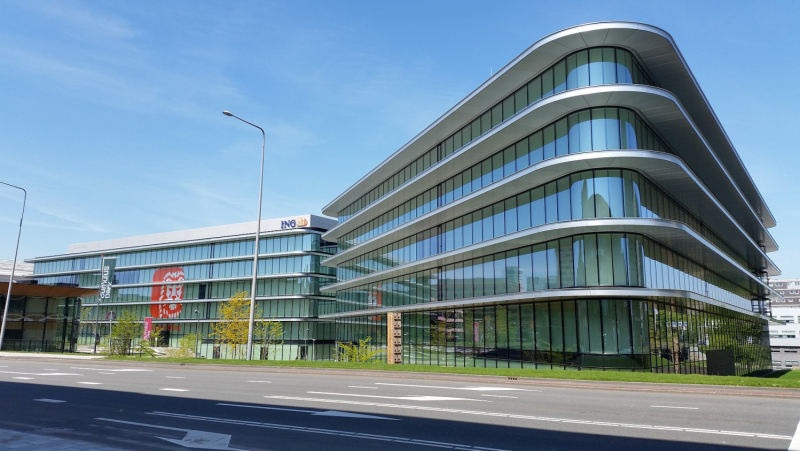
Active
This profile is actively maintained| Website | https://www.ing.com/Home.htm |
| Headquarters |
Bijlmerdreef 106
1102 CT Amsterdam
Netherlands
|
| CEO/chair |
Steven van Rijswijk CEO |
| Supervisor | |
| Ownership |
listed on Euronext Amsterdam & Euronext Brussels
ING's shareholder structure can be accessed here. |
ING (an abbreviation of Internationale Nederlanden Groep) is a Netherlands based international financial services company and one of the world's largest savings banks. It was founded through a merger in 1991 of NMB Postbank Groep and the insurance business of Nationale-Nederlanden, which history dates back to 1845. ING's primary businesses are retail banking, direct banking, commercial banking, investment banking, asset management, and insurance services. ING is active in over 40 countries.
ING's most important sustainability commitments can be found at the website sections listed below.
ING has the following bank policies in place:
ING is linked to a number of companies and projects that BankTrack considers controversial (so called Dodgy Deals), e.g. as a current or past financier or through an expression of interest. The profiles below provide more details on the nature of ING's link to these deals.
The dark side of US LNG
The Dark Side of US LNG is the result of a field mission to the United States to uncover the strong and growing ties between Italy, and in particular Italy's largest banking group, Intesa Sanpaolo, and the American liquefied natural gas (LNG) sector. Interviews by ReCommon. Filming, editing and music: Carlo Dojmi di Delupis. www.recommon.org
Individuals and communities who may be adversely affected by ING's finance can raise a complaint to the bank via email at chief.compliance.officer@ing.com or via post - see the bank’s complaints page.
Employees and suppliers can raise concerns via a dedicated SpeakUp channel.
Stakeholders may also raise complaints via the OECD National Contact Points (see OECD Watch guidance).
ING is an Equator Principles signatory. While the Equator Principles have no official grievance mechanism, complaints relating to this bank's financing of Equator Principles projects can be filed through our own website www.equator-complaints.org.
This page evaluates ING's responses to instances of alleged human rights violations linked to its finance, raised by civil society organisations. It is not intended to be exhaustive, but covers selected impacts raised by BankTrack and other civil society partners since 2016. For the full scoring methodology, see here. For more information about BankTrack's evaluation of bank responses to human rights impacts, see the 2021 report "Actions speak louder: assessing bank responses to human rights violations".
The bank publicly responded but did not confirm its link to the company, citing client confidentiality.
Following the bank's response: The bank stated that ""while we do not finance products directly facilitating deforestation in the Amazon, commodity traders such as the client's listed within the aforementioned report face supply chain risks"", therefore acknowledging its link to the impact. The bank did not comment on or respond to the substance of the issues raised, resulting in the bank's score being amended to 0.5.
Banks and Climate
The 2024 Banking on Climate Chaos report showed that ING provided US$ 106.442 Billion in financing to the fossil fuel industry between 2016 and 2023. In 2023 only, ING provided US$ 3.433 Billion for oil, gas and coal companies expanding fossil fuels. Find further details on ING fossil fuel portfolio and how it compares to other large banks globally on Fossil Banks No Thanks and in the Banking on Climate Chaos report.
Partner organisation Reclaim Finance tracks the coal, oil and gas policies of financial institutions, including banks, in their Coal Policy Tool (CPT) and the Oil and Gas Policy Tracker (OGPT). BankTrack works closely with Reclaim Finance and endorses their policy assessments. Find further details on their assessment of ING’s fossil fuel policy below.
False Solutions Tracker
The purpose of the False Solutions Tracker is to give a clear overview of energy technologies that fall under banks' individual sustainable finance commitments. The tracker lists 11 energy technologies that are usually associated with the energy transition and the decarbonisation of the economy. These technologies are defined here and classified in three categories:
-
Real solutions: Technologies that deliver on a Just Transition towards Energy Democracy. BankTrack considers these technologies as real solutions only if and when they do deliver Energy Democracy.
-
Solutions under strict conditions: Energy technologies that could be real solutions if they deliver on a Just Transition towards Energy Democracy but that could also be false solutions. This is the case of hydrogen and hydropower. On one hand, fossil-free and green hydrogen could be a real solution under certain conditions. However, fossil-based hydrogen and nuclear hydrogen are always false solutions. On the other hand, hydropower lifespan extension could also be a real solution under strict conditions while hydropower expansion is a false solution.
-
False solutions: Energy technologies that are not aligned with a just transition towards Energy Democracy.
For each one of the 11 energy technologies, the tracker indicates if it is included in bank's individual sustainable finance commitments:
For Real solutions:
- : Yes, the bank includes its finance towards this energy technology in its sustainable finance reporting.
- : Yes, the bank includes its finance towards this energy technology in its sustainable finance reporting, but under certain conditions. In this case, those conditions are mentioned in the "relevant policy document" section for each bank.
- : No, the bank does not include its finance towards this energy technology in its sustainable finance reporting.
- : It is unclear whether the bank includes or not its finance towards this energy technology in its sustainable finance reporting.
For solutions under strict conditions and for false solutions:
- : Yes, the bank includes its finance towards this energy technology in its sustainable finance reporting.
- : Yes, the bank includes its finance towards this energy technology in its sustainable finance reporting, but under certain conditions. In this case, those conditions are mentioned in the "relevant policy document" section for each bank.
- : No, the bank does not include its finance towards this energy technology in its sustainable finance reporting.
- : It is unclear whether the bank includes or not its finance towards this energy technology in its sustainable finance reporting.
Banks and Human Rights
BankTrack assessed ING in its 2024 Global Human Rights Benchmark, where it achieved 10 points out of 15 and was ranked as a “moderate achiever”.
The bank scored 1.5 out of 3 points on the new “specific rights indicators”, which assess how banks address human rights defenders, Indigenous Peoples’ right to Free, Prior and Informed Consent and environmental rights in their policies and practices.
In addition, ING scored 0.6 out of 3 on how it responds to alleged human rights violations linked to its finance, which were raised by civil society organisations. More information is detailed in the “Accountability” section of this profile.
The table below shows BankTrack's assessment of how ING has implemented the UN Guiding Principles on Business and Human Rights. Please click on 'details' and 'explanation' for further information on the methodology.
Our policy assessments are always a work in progress. We very much welcome any feedback, especially from banks included in the assessments. Please get in touch at humanrights@banktrack.org.
Global Human Rights Benchmark 2022
Global Human Rights Benchmark 2024
Banks and Nature
ING’s policies for forest-risk sectors (beef, soy, palm oil, pulp and paper, rubber and timber) have been assessed by the Forests & Finance coalition, achieving an overall score of 6.3 out of 10 and ranking it as a front runner. ING achieved a score of 4.7 out of 10 specifically for its policies related to the beef sector and 7.6 out of 10 for its policies related to the palm oil sector.
Between 2016 and 2022, ING provided USD 1,689 million in credit to companies operating in these forest-risk sectors and held investments amounting to USD 1 million as of 2022.
BankTrack has also assessed ING’s policies related to the wood biomass sector and found that while it does mention biomass in its policy, it refers to it as a source of renewable energy and does not exclude it from finance. For more information, see the links below.
Forest & Finance Policy Assessment 2022: Overall scores
A bank can obtain a total of 10 points for the quality of its policies. The total score is based on their scores per sector, weighted against their financing and investment for each sector. For further details on this see here. Based on their overall score, banks are then classified as Laggards, Followers, Front runners or Leaders, as follows:
Forest & Finance Policy Assessment 2022: Beef
A bank can obtain a total of 10 points for the quality of its beef policy. The total score is based on their scores per sector, weighted against their financing and investment for each sector. For further details on this see here. Based on their overall score, banks are then classified as Laggards, Followers, Front runners or Leaders, as follows:
Forest & Finance Policy Assessment 2022: Palm Oil
A bank can obtain a total of 10 points for the quality of its palm oil policy. The total score is based on their scores per sector, weighted against their financing and investment for each sector. For further details on this see here. Based on their overall score, banks are then classified as Laggards, Followers, Front runners or Leaders, as follows:
Tracking the Net Zero Banking Alliance
Banks and Russian Aggression in Ukraine
BankTrack is keeping track of the public response of ING to Russia's illegal invasion of Ukraine. ING publicly condemned the war. ING is considered by Leave-Russia.org to be "buying time" in Russia. We categorise its exposure to Russia as moderate, with over $4.9 bn of financial assets. ING supports the Russian fossil fuel industry through loans, and underwriting. For further details, see the table linked below.
Banks and Steel
Dutch bank ING is the first major bank globally to stop providing dedicated finance for new unabated steel blast furnaces and for the extension of existing unabated blast furnaces.
ING’s ESG Risk Framework applies to its financing of clients in the metals and mining sector. The policy recognizes that the sector is associated with heightened environmental and social risks, including air and soil pollution, labour risks and risks to community health and safety.
ING is also a founding member of the Sustainable Steel Principles. This means it has committed to measuring and disclosing its steel-related financed emissions on an annual basis, and reporting its alignment with the International Energy Agency’s Net Zero by 2050 pathway for the steel industry.
Additionally, as part of the Net Zero Banking Alliance (NZBA), ING is required to set interim targets for 2030 for high emission priority sectors. For ING, this includes its lending to the steel sector. You can see ING’s iron and steel decarbonisation targets, and its progress towards meeting them, in our NZBA steel targets compliance tracker:
Partner organisation Reclaim Finance’s 2023 report on metallurgical coal financing showed that ING provided US$ 4.1 billion in loans and underwriting to developers of new metallurgical coal between 2016 and 2022. Find further details on ING’s metallurgical coal financing and and how it compares to other large banks globally in the report.
Reclaim Finance tracks the metallurgical coal policies of financial institutions, including banks, in their Coal Policy Tool. BankTrack works closely with Reclaim Finance and endorses their policy assessments. Find further details on their assessment of ING’s metallurgical coal policy below.
According to a report by reclaim finance, between 2016 and June 2023, ING Group provided $6.6 billion in finance to the fossil-steel indutry, making it the 16th largest financier worldwide. Find further details on ING's steel financing and how it comparesto other large banks globally in the report.

